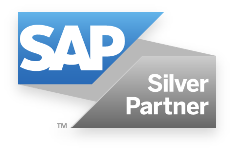ERP and CRM: apart or integrated?

Enterprise Resource Planning (ERP) and Customer Relationship Management (CRM) systems are two of the foundational enterprise technologies for growing businesses.
The former may be thought of as a backend system, one which looks after internal business processes such as purchases, billing, shipping and supply chain management, and seeks to optimise them. Meanwhile the latter may be thought of as a frontend system, one which looks after outward-facing workflows such as customer interactions, sales tracking and pipeline management.
Clearly, then, both play a crucial role in granting visibility and a centralised record of key business processes, but they operate in quite different parts of the organisation. Or do they?
Whilst CRM systems might be thought of as looking after the customers and ERP systems as looking after the business itself, it is surely clear that the customer is hugely linked to the business. There is a significant overlap, then between the two systems – one which many organisations are choosing to harness by integrating the two technologies with each other, rather than deploying two separate systems.
Is this the right model for your business? It certainly could be. Consider the following advantages of integrating your CRM system into your broader ERP solution:
Visibility
Integrating your CRM and ERP systems with each other gives you a truly holistic view of your customers. Sales, marketing and support communications are seen in the same place as finance and accounting records. This gives you a far richer and deeper perspective on your relationship with each customer – today and into the future.
Engagement
On a related point, because all of the data associated with each customer is in one place rather than two, each engagement with a particular customer is more informed and efficient. Operatives within your organisation, whether customer support staff, account managers, or accountants, can quickly pull up not only the data they need, but also ancillary information which can help them do their job better.
Efficiency
An integrated ERP and CRM system removes the need for a huge amount of duplication and manual data entry. Make an alteration in one system and it is automatically reflected in the other.
Organisation
Imagine a customer proposal being prepared and sent off. It will, of course, be recorded in the CRM system. However, say that proposal turns into an order. With two separate systems, the proposal essentially has to be re-entered in the ERP system in order to fulfil the order and track inventory accurately. In the integrated system, proposal generation and orders are two sides of the same coin – and sales teams and procurement and stock management personnel can work together more effectively.
Training and support
Training staff on how to use enterprise technology can be both costly and time-consuming, particularly when new functionality is added or roles and responsibilities change. Simply put, training staff in one system rather than two is a far more time and cost-efficient approach. Similarly, managing and supporting your solution on an ongoing basis, whether with an in-house or external IT team, is usually simpler and cheaper with an integrated system.
It is important to remember that you don’t necessarily need to use the same vendor when adopting an integrated approach to CRM and ERP. Whilst many ERP solutions do include CRM modules, your precise needs may be better met by going to a second organisation. The onus should be on your ERP implementer to ensure that the integration is carried out as efficiently as possible.
An integrated approach to ERP and CRM can truly be the foundation for sustainable growth, simpler information management and more intelligent and transparent business processes. Speak to APH today to find out more about how we can get you there.

